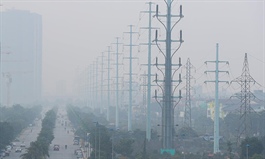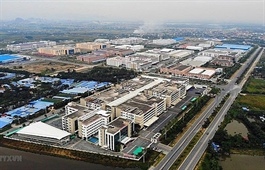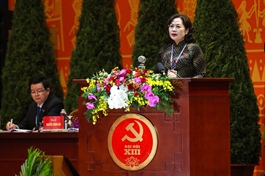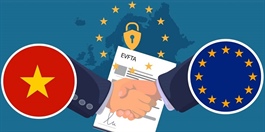Promoting synergies through EVFTA
Promoting synergies through EVFTA
The new Law on Investment, which took effect on January 1, aims to ease the doing of business in Vietnam and will have a positive impact on the attraction of foreign investment and improvement of Vietnam’s business environment.

By Prof. Dr. Andreas Stoffers - Country director Vietnam Friedrich Naumann Foundation for Freedom
|
This effect is perfectly timed with the positive effects of free trade agreements such as the Regional Comprehensive Economic Partnership, Comprehensive and Progressive Agreement for Trans-Pacific Partnership, and the EU-Vietnam Free Trade Agreement (EVFTA). This creates synergies that Vietnam needs right now in times of the country’s attempts of repositioning after the pandemic crisis.
In general, the new Law on Investment helps resolve overlapping investment-related laws, and clarifies conditions and principles to select investors for projects involving land use – including the auction of land use rights, bidding to select investors, and the approval of investors and investment practices.
There are several major changes. Foreign investors are entitled to the same market entry conditions as applicable to domestic investors for sectors that both can invest in without any conditions (except for areas subject to market entry conditions and are to be listed by the government).
It is saving time for both foreign investors and licensing authorities in determining and appraising investment proposals and applications for registration of mergers and acquisitions (M&As). New investment incentives are also introduced. They are based on performance and investment time and towards attracting for foreign investors to enter the Vietnamese market.
New forms of investment in the context of global transformation in the Fourth Industrial Revolution are allowed, especially via incentives in the area of innovation and technology startup projects. The law provides more industries with investment incentives such as tertiary education, medical materials and supply, and science and technology products as well as products contributing to global value chains.
To ensure the quality of foreign investment, the amended law includes specific conditions for sectors and projects that are entitled to investment incentives. These sectors are carefully selected and designed to lift Vietnam’s economy to the next level of the Fourth Industrial Revolution. This includes high tech sectors like IT, research and development, and new and clean energies.
The investment procedures in the area of M&A are also clarified and made easier for foreign investors. However, advice from law firms will be still important, especially if there are changes in the ownership ratio of foreign investors in the target company.
These changes underline the government’s efforts to further improve the business environment as well as enhance its position in international rankings such as the Ease of Doing Business report by the World Bank and Regional Risks for Doing Business by the World Economic Forum.
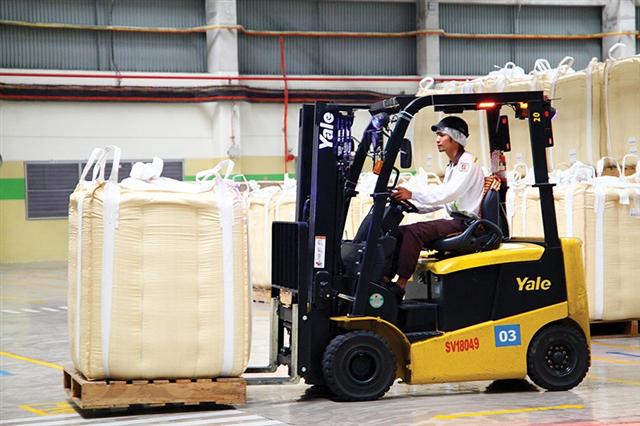
The new Law on Investment, enacted in January, will ease business, especially when it comes to implementing EU agreements, Photo: Le Toan
|
Synergies of law with EVFTA
The new law comes at the right time, because of the many FTAs Vietnam has signed and/or ratified in the last months. Among them, the most advanced and modern one is the EVFTA. The advantages for Vietnam through the EVFTA are clear: it gives access to the biggest market worldwide, and along with the COVID-19 crisis, Vietnam can make use of the great interest of EU countries governments to recover.
Vietnam could profit from technology and technology transfer from the EU, especially in connection with the Vietnam-EU Investment Protection Agreement (EVIPA), which will hopefully be ratified this summer.
Adapting high EU standards would strengthen Vietnam’s competitiveness in the world market. In addition, the option for Vietnamese companies to invest in Europe also has good prospects. As far as the ongoing trade war between the United States and China is concerned, Vietnam is able to diversify imports, exports, and foreign direct investment (FDI), involving the EU as a neutral third party. Therefore, the EVFTA is definitely one essential part of Vietnam’s repositioning strategy.
The synergies of the new Law on Investment and the EVFTA are obvious: FDI has been one of the key drivers of socioeconomic growth in Vietnam over the last decades. Both the EVFTA and the new Law on Investment are promoting FDI by improving Vietnam’s global competitiveness. Combined with the EVIPA, the synergetic effects will be even bigger.
It is very positive that foreign investors will not need to apply for an investment registration certificate if they want to invest in a startup or investment fund for startups in the area of high-tech, digitalisation, smart buildings, or energy.
These industries are the essential prerequisites for Vietnam to meet the requirements of Industry 4.0. Against this context, promoting this development, whether by domestic or foreign investors, makes a great deal of sense. Subsequently, Vietnam would be an interesting place for attracting high quality investment.
Hence, Vietnam can be encouraged to continue on this path. It will support Vietnam’s repositioning in the world after COVID-19. Moreover, it demonstrates the openness of Vietnam’s leaders to speed up the economic recovery and development.
With the new law, Vietnam has proven its openness to investors from other countries, who are thirsty for legal certainty. Besides all the other positive signs given by Vietnam, the law is one of the reasons why, for instance, German businesses are very bullish regarding Vietnam and their own business in the country specifically.
According to a recent survey from the German Chamber of Commerce, 55 per cent of German companies expect Vietnam to recover this year, and 32 per cent next year. Regarding their own business in Vietnam, 50 per cent of these interviewed German companies expect a better business in 2021. Only 41 per cent out of them see their business unchanged, and just 9 per cent are pessimistic. Compared to other countries, these figures are outstanding.
Again, openness and legal certainty as seen in the investment law play an important role. However, there has always been room for improvement.
Taking advantage
Despite the good conditions created by the new Law on Investment, success is not guaranteed. One of the key success factors is to get the word out to business in Vietnam and abroad. The phrase “knowledge is power” also counts here.
Unfortunately, many businesspeople are not yet aware of the positive effects of the law. This is where awareness campaigns must come in. The Vietnam Chamber of Commerce and Industry, its European counterpart, and the national European chambers of commerce are natural partners for dissemination, and the Friedrich Naumann Foundation is already involved here.
Abroad, embassies can play a supporting role in this. For example, Vietnamese Ambassador in Berlin, Dr. Nguyen Minh Vu, is very well connected with German business organisations. These contacts can be used for another Vietnamese image campaign. However, it remains essential for foreign investors to involve lawyers at an early stage. The aim here is to identify stumbling blocks in good time and remove them.
In order to reposition Vietnam after the pandemic, the new law is an important element for recovery as it stands for the open and liberal politics of Vietnam. It moves in the direction of legal certainty and makes Vietnam - especially in conjunction with the EVFTA and EVIPA - more attractive for investors from overseas.







